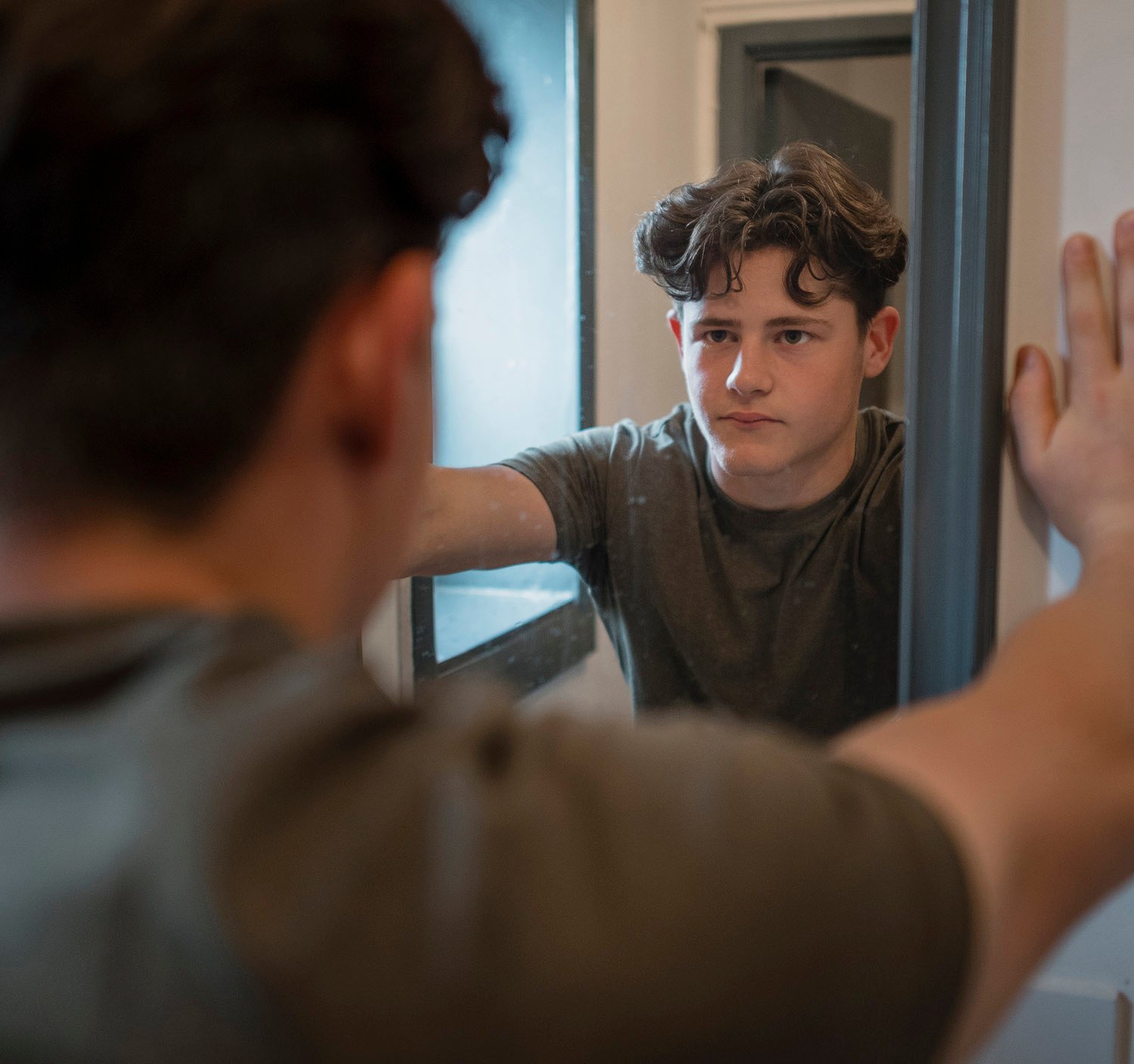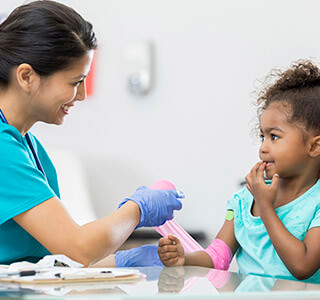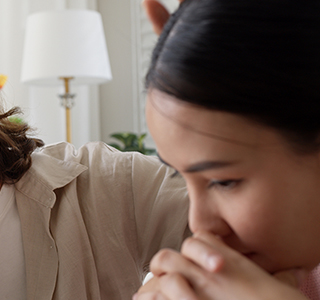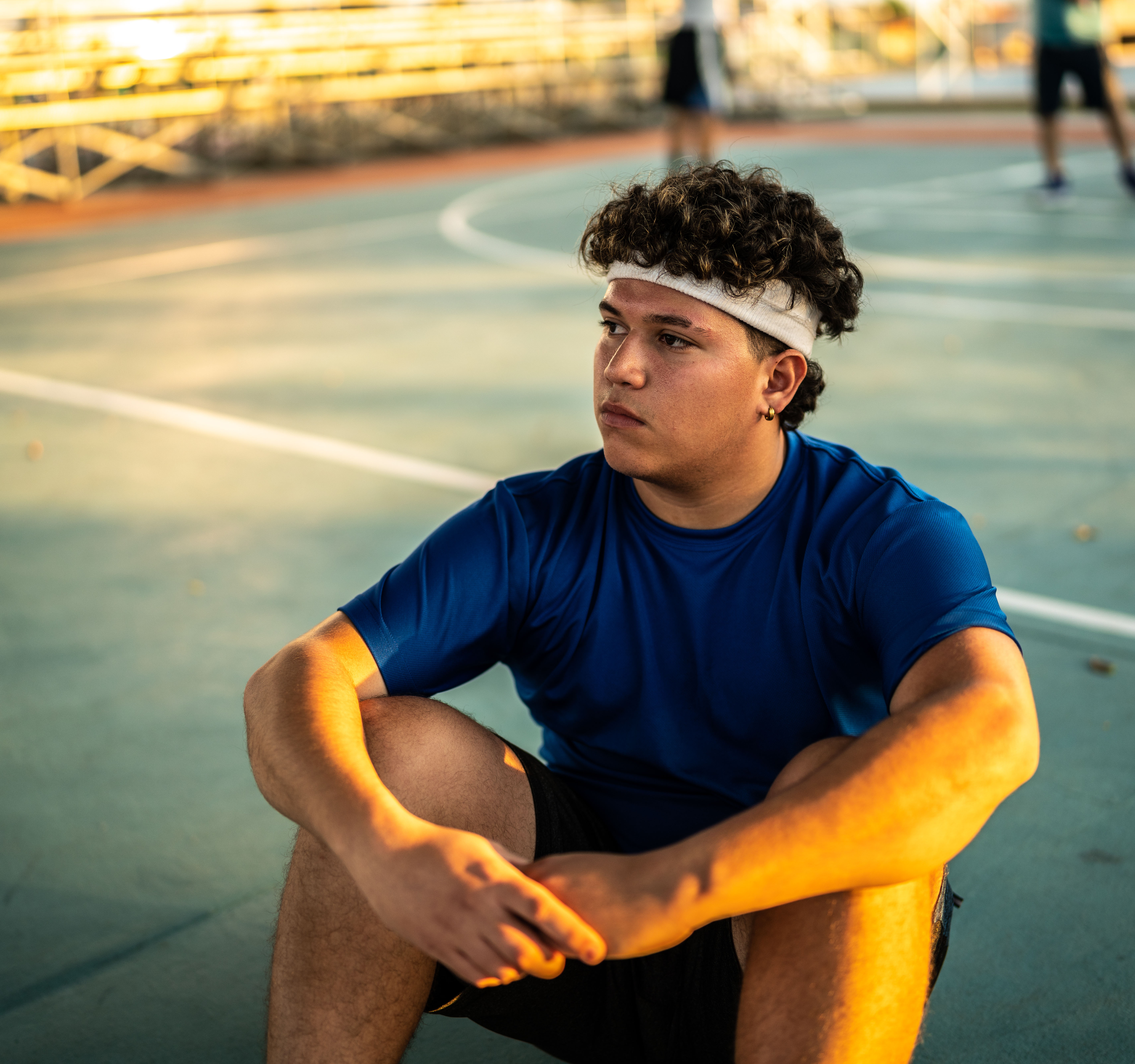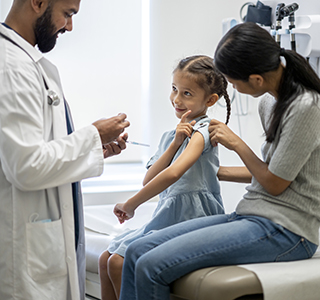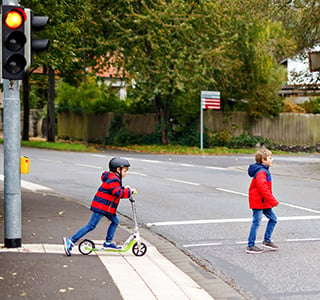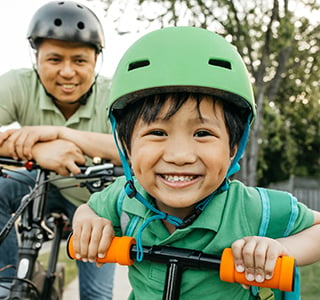It's not perfect. It's parenting.
Sometimes you need answers to the little everyday things that parents encounter. And sometimes, you just need someone to encourage you through all of the craziness and challenges of parenthood. Welcome to Parent-ish, a blog from the experts at Children's Mercy.

Get updates
Have a parenting hack to share? Or a topic you'd like to see?
Category: Teen
Adulting 101: Helping your teen build a resume and land their first job
Watching your child take their first steps into the working world is both exciting and a little nerve wracking. Whether they’re looking for a summer job or starting to explore long-term career interests, your support can make a big difference. We’ve outlined 7 ways you can help them navigate job applications and build a strong resume.
Addressing body image concerns in teen boys
While stereotypes may say differently, body image issues are not exclusive to girls; they are increasingly prevalent among teen boys as well, often leading to significant mental and physical health challenges. As parents, understanding these issues and knowing how to support your son or other teen boys in your life is crucial. Keep reading for insight into common signs of body image issues, the role of social media and ways to help foster a healthy body image.
Adulting 101: Applying for college financial aid
Higher education is an important goal for many students, but it comes with its share of questions about affordability. Degrees aren’t cheap, and you want to be sure you and your student are making a sound investment. That’s where financial aid comes in. Even if you have funds set aside for school, it’s worthwhile to apply for help – and you may be eligible and not know it! We hope to help simplify and provide clarity for you and your teen.
Party smart: A parent’s guide to keeping teens safe (without cramping their style)
For teens, events like school dances and sporting events are rites of passage. Often, they’re followed by another rite of passage that can be anxiety-inducing for parents: after parties. As parents, ensuring the safety of our teens when they attend parties can be a daunting task. But with communication and boundary setting, you can help your teen navigate these events safely.
5 teen relationship red flags
I spend a lot of time talking to patients and parents about healthy relationships. It’s common for teens to have some less-than-great experiences as they take more ownership over their social lives. With support from schools, health care professionals and other trusted adults, parents can help adolescents prioritize positive connections and avoid harmful dynamics.
How to connect with your teen – authentically
It feels like there are a lot of tips to help you prepare for taking care of a newborn – but those newborns grow up and they turn into teenagers. It’s a different ballgame to try to connect with your teen as they are finding their own interests, likes and dislikes. If you’re looking for ways to connect with your teen but want to keep it genuine, while still respecting their boundaries and budding independence, we’ve got you covered with these 5 tips.
Top 10 tips for teens transitioning to adult medical care
Most parents have a mental list of skills they want their teen to have before they become an adult: laundry lessons, money management and cooking basics, to name a few. But have you talked with your teen about how to handle their own health care? From making appointments to understanding which medications they take and why, there are key things your child needs to know as they become more independent.
When to go: Emergency Room vs. Urgent Care
The inevitable has happened - your child came down with an unforeseen illness or injury. And of course, it always happens when your doctor’s office is closed. So, the dilemma every parent faces …do you go to the Emergency Room (ER) or Urgent Care?
Talking with teens about healthy relationships
Relationships are a vital part of life no matter what age we are. They help us learn about ourselves and the world around us, teach us valuable lessons and help us feel a sense of belonging. Teenagers are especially focused on peer relationships because they help build an individual’s sense of identity and are an important part of to their normal, healthy development. Whether they are engaging in friendships or romantic relationships, teens need guidance from trusted adults.
How to talk to your kids about their first heartbreak
Our first love can be a highly emotional experience and the same goes for first heartbreak. It’s never easy to see your child hurting, but you can ease their struggle by remaining open and available to listen.
The power of self-esteem: How to prevent bullying in children
Self-esteem begins to develop in early childhood when children start to develop their sense of self. As children begin to understand and know who they are, they start to identify the key qualities and aspects of themselves. Self-esteem plays an important role in early development and continues to be impacted over the course of development for a child.
Top questions for your pediatrician at all ages
When you have your first baby, they unfortunately aren’t born with a handbook. Even if they were, every child is different and may not follow exactly what would be “outlined.” As a first-time parent you are going to have lots of questions and those questions won’t stop until your child is grown. You may first start asking questions about milestones your child should be reaching in their early years, but will eventually transition to questions on when you should bring up topics like the birds and the bees.
6 most preventable childhood injuries
Most childhood injuries can be prevented and knowing how to prevent an accident is key to keeping children safe. We’ve all been taught the basics. Buckle-up in the car, wear a bike helmet and look both ways before crossing the road.
What parents should know about synthetic drugs
My nephew, Cooper, was a fun, adventurous, outgoing kid that everyone loved to be around. He was kind-hearted, strong-willed and hard-headed. He was drawn to extreme sports like snowboarding, rock climbing, motorcycles and cliff jumping. He was a risk-taker…absolutely fearless. Cooper also thought he was invincible.
How parents can make a healthier environment for healthier kids (on Earth Day and every day)
This Earth Day, your family might be spending time in local community gardens, planting trees with neighbors, or gathering to celebrate in the great outdoors. These are great ways to support Mother Nature, and there is still a lot we can do to combat the effects of climate change right where we are.


